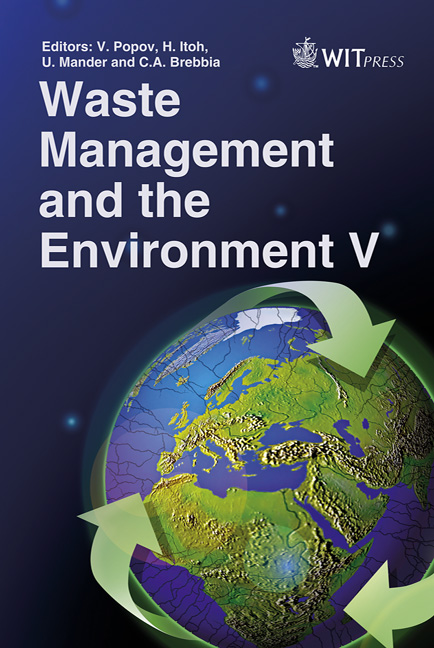Land Spreading Of Solar-dried Citrus Peel To Control Runoff And Soil Erosion
Price
Free (open access)
Transaction
Volume
140
Pages
10
Page Range
145 - 154
Published
2010
Size
380 kb
Paper DOI
10.2495/WM100141
Copyright
WIT Press
Author(s)
G. Bombino, P. Denisi, D. Fortugno, V. Tamburino, D. A. Zema & S. M. Zimbone
Abstract
Marginal areas of southern Italy are often characterised by steep slopes and scarce vegetal coverage, which induce relevant runoff and soil erosion phenomena. On the other hand, the agricultural system of some Italian regions is characterized by the presence of many citrus industries, producing high amounts of by-products and wastewater. The possibility of spreading orange peel over land could represent an alternative solution for a more sustainable biomass disposal and, at the same time, protect against the risks soil erosion in Mediterranean areas. This paper reports the results of an experimental research activity aimed at evaluating the hydrological effects of land spreading of solar-dried citrus peel over steep plots (remodelled at 100%-slope), containing bare soil or covered by vegetation and exposed to natural rainfalls. The comparison of hydrological observations to those performed on untreated soils (\“control”) highlighted that the addition of citrus peel to soil induced an appreciable reduction of runoff and particularly of sediment yield, due to the improvement of the soil properties, which encourages the establishment and development of vegetation. Keywords: soil conservation, orange peel, runoff, sediment yield, vegetal coverage. 1 Introduction The lack of vegetal coverage, together with the slope steepness, induces heavy erosion phenomena in marginal areas as well as in the artificial banks of roads,
Keywords
soil conservation, orange peel, runoff, sediment yield, vegetal coverage





